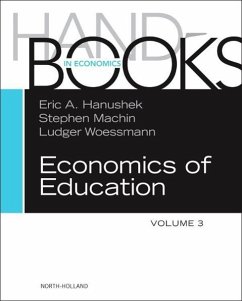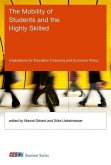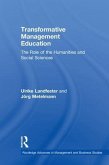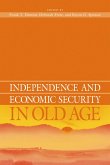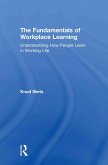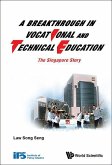How does education affect economic and social outcomes, and how can it inform public policy?
Volume 3 of the Handbooks in the Economics of Education uses newly available high quality data from around the world to address these and other core questions. With the help of new methodological approaches, contributors cover econometric methods and international test score data. They examine the determinants of educational outcomes and issues surrounding teacher salaries and licensure. And reflecting government demands for more evidence-based policies, they take new looks at institutional feaures of school systems. Volume editors Eric A. Hanushek (Stanford), Stephen Machin (University College London) and Ludger Woessmann (Ifo Institute for Economic Research, Munich) draw clear lines between newly emerging research on the economics of education and prior work. In conjunction with Volume 4, they measure our current understanding of educational acquisition and its economic and social effects.
Uses rich data to study issues of high contemporary policy relevance Demonstrates how education serves as an important determinant of economic and social outcomes Benefits from the globalization of research in the economics of education
Hinweis: Dieser Artikel kann nur an eine deutsche Lieferadresse ausgeliefert werden.
Volume 3 of the Handbooks in the Economics of Education uses newly available high quality data from around the world to address these and other core questions. With the help of new methodological approaches, contributors cover econometric methods and international test score data. They examine the determinants of educational outcomes and issues surrounding teacher salaries and licensure. And reflecting government demands for more evidence-based policies, they take new looks at institutional feaures of school systems. Volume editors Eric A. Hanushek (Stanford), Stephen Machin (University College London) and Ludger Woessmann (Ifo Institute for Economic Research, Munich) draw clear lines between newly emerging research on the economics of education and prior work. In conjunction with Volume 4, they measure our current understanding of educational acquisition and its economic and social effects.
Uses rich data to study issues of high contemporary policy relevance Demonstrates how education serves as an important determinant of economic and social outcomes Benefits from the globalization of research in the economics of education
Hinweis: Dieser Artikel kann nur an eine deutsche Lieferadresse ausgeliefert werden.
The Handbook chapters are incisive. Each one successfully organizes an extensive literature around its core motivations, methodological concerns, and empirical results. In addition to their concise reviews of existing work, they point the way for new research.
William Collins, Vanderbilt University
This Handbook volume offers a lot. Empirical investigators will especially benefits from its broad and insightful review of the methods used to identify and estimate the returns to education and the effects of school and teacher quality on student outcomes and house prices.
Franco Peracchi, Tor Vergata University
William Collins, Vanderbilt University
This Handbook volume offers a lot. Empirical investigators will especially benefits from its broad and insightful review of the methods used to identify and estimate the returns to education and the effects of school and teacher quality on student outcomes and house prices.
Franco Peracchi, Tor Vergata University

